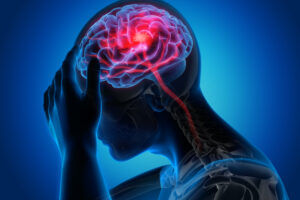Are You Suffering Because of Your Mind or Your Brain?
- drmkandle
- Jan 13, 2022
- 3 min read

Are You Suffering Because of Your Mind or Your Brain?
If you’re miserable and if you want to feel better as soon as possible, you need to begin by accurately identifying the cause(s) of your misery. Sometimes it’s obvious and sometimes it’s not. The real reason is often not what we think it is.
These are the three most common causes of psychological distress:
Life’s painful hardships.
The mind has troubled thinking patterns and conflicts.
There’s something amiss with the brain.
Of course these causes are not mutually exclusive. Emotional suffering can be the result of any two or all three of them. Regardless, most people assume that their miseries are caused by the hardships of their lives because this is what is the clearest to recognize. People usually don’t recognize the problems within their minds because of how much of it takes place subconsciously. Even fewer people recognize the possibility that something might be amiss with their brain.
The confusion about the true roots of suffering is often shared by therapists too. Not all therapists are educated in the biology of the brain because their training instead focused on the psychology of the mind. Misconceptions about the true cause(s) of psychological distress undermines the effectiveness of the treatment that is provided.
Because most clients and their therapists can most easily identify the external causes of suffering, the focus here will be on the two harder to detect causes – the mind and/or the brain.
What’s the difference between the mind and the brain? The two are inseparable, yet they’re entirely different. In many ways the differences between the mind and brain parallel the differences between computer software and hardware. The mind and computer software consist of programmed operations that are intangible, while the brain and computer hardware can both be seen and touched.
Continuing with the analogy, if your computer is not performing properly, then you must determine if the problem is with its software or its hardware. It’s the same way with the mind and the brain. Unfortunately the mind/brain puzzle is much more complicated to figure out. That’s because the mind and the brain both have the ability to cause problems for each other. The mind’s activity affects brain activity and the brain’s activity affects the mind’s activity. So there’s a bit of a chicken or the egg mystery to this puzzle.
The mind has patterns of thinking which have enormous influence on how it interprets reality, what emotions are felt, and how it perceives others and oneself. For instance, thinking habits characterized by harsh self judgment provoke feelings of guilt, shame, inferiority, inadequacy, anxiety, anger, and depression. Conversely, thinking habits that are more compassionate promote a greater sense of wellbeing.
Everyone has multiple “voices” in their subconscious minds, and we are often unaware of the stressful conflicts that exist between their messages. Most people understand the dynamic of having a “devil” on one shoulder battling an “angel” on the other. These are two (metaphorical) parts of human nature that combat each other, sometimes escalating to a sort of “holy war” raging within. The famous Pixar movie Inside Out depicts how contrasting “parts” within the subconscious mind create conflict and distress. Subconscious conflicts create misery in the same ways that perpetually arguing families do.
The brain creates misery in entirely different ways. Setting aside incidents of actual brain damage, the most common way the brain causes problems is when its chemistry is imbalanced. There are two primary ways in which this happens. Chemical imbalances in the brain can come either from one’s heredity or from exposure to environmental toxins (e.g. viruses, bacteria, heavy metals, and pollutants. There are also the ways we alter our brain chemistry voluntarily through the consumption of alcohol, nicotine, pot, other drugs, and our diets. Determining which of these is the primary cause of a chemical imbalance helps determine what the most effective intervention will be.
It’s easy for people to be confused by the invisible mind/brain puzzle that may be a primary or contributing source of their grief. And these confusions might lead to a focus on brain chemistry when it’s actually the mind that needs help, or focusing on the mind when it’s actually the brain that needs help, or focusing on only one when they both need help. That’s why the more people and their healthcare providers understand the invisible mind/brain puzzle, the more likely they’ll get the relief from their suffering that they deserve.


Comments